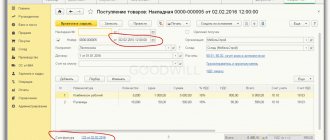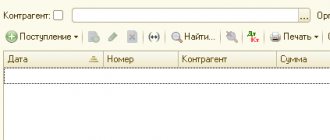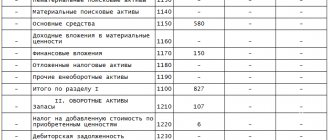When a transaction on an account is blocked by the bank's financial monitoring, you must provide documents confirming the integrity of the transaction. If the blocking is not lifted, you should go to court.
Blocking a current account is the suspension of expenditure transactions on it for reasons established by law. In banks, the Financial Monitoring Service has such powers.
Note. The financial monitoring service is a division of the bank whose responsibilities include monitoring customer transactions.
First, it’s worth understanding why financial monitoring blocks current accounts, and what to do in each of the possible options. It is important to understand that blocking an account and refusing to carry out a transaction are different procedures.
Table 1. Types of sanctions
| Procedure | Peculiarities |
| Refusal to perform an operation | The most common type of restriction is the blocking by the bank of transactions on a current account in accordance with 115-FZ of 08/07/2001. Grounds for refusal:
|
| Account blocking | The bank can block all transactions on the account only if its owner is included in the list of companies and individuals. persons involved in extremist or terrorist activities. The list can be found on the website of the Federal Service for Financial Monitoring. In other cases, only Rosfinmonitoring or a court can completely block an account. Rosfinmonitoring has the right to suspend operations on an account for no more than 30 days, provided that its owner is involved in terrorist and extremist activities. Only a court can block movements on an account for a longer period. In this case, there is no point in arguing with the bank; nothing depends on it. You will have to prove your case by contacting the local branch of Rosfinmonitoring and finding out the essence of the accusations. |
Operations subject to mandatory control
According to the provisions of Federal Law No. 115-FZ, banks are required to control all transactions in amounts equal to or exceeding 600 thousand rubles or equivalent in foreign currency:
- Expenditure and receipt transactions with cash not due to the nature of business activity (including withdrawals using Cash cards).
- Receipt and expense transactions, if at least one of the participants in the transaction is located, registered or resides in a territory or state that does not comply with the FATF recommendations, or the bank in which the account of one of the participants is opened is located in this territory (state)
- Cash transactions on bearer or third party deposits. Transfers abroad to anonymous owners or receiving transfers from them.
- Movements on a legal account. person within three months from the date of its registration, or if this is the first movement on the account.
- Leasing operations.
- Operations with precious metals and stones (scrap, jewelry).
- Providing loans to legal entities. persons other than credit institutions.
- Real estate transactions for amounts equal to or exceeding 3 million rubles or equivalent in foreign currency.
- Receipt and expense transactions on the accounts of non-profit organizations, when one of the parties is a foreign company, a citizen or a stateless person, and the amount is equal to or exceeds 100 thousand rubles or its equivalent in currency.
- Operations related to the supply of products under defense orders, if the amount is equal to or exceeds 600 thousand rubles or its equivalent in foreign currency. For repeated transactions, amounts exceeding 50 million rubles and their equivalent in foreign currency are controlled.
- Operations in which one of the parties is included in the list of those involved in extremist or terrorist activities.
Results
Financial monitoring is a control procedure carried out to check each legal entity or individual for involvement in criminal acts. Including credit structures that conduct transactions with funds also participate in it. The results of this control are reflected in registers posted on the Rosfinmonitoring website. Inclusion in such a list becomes the basis for blocking the accounts of a legal entity or individual by the credit structure. In certain situations (cancellation of the document that led to its inclusion in the list, presence of an error), the blocking can be canceled. To do this, you should contact Rosfinmonitoring with an application.
Sources: Federal Law of August 7, 2001 No. 115-FZ
You can find more complete information on the topic in ConsultantPlus. Free trial access to the system for 2 days.
Main signs indicating an unusual nature of the transaction
- The confusing or unusual nature of a transaction without obvious economic meaning or legitimate purpose, or its inconsistency with the organization's goals as stated in the founding documents.
- The client’s refusal to provide the bank with documents requested for analysis, unjustified delay of the procedure, provision of information that cannot be verified.
- Unusual client concerns about confidentiality, unusual payment instructions, excessive haste, or changes to an agreed settlement plan.
- Neglect of more favorable payment terms.
- The client is a foreign public person or acts in the interests of such a person.
- Lack of information about the client in official directories, as well as the inability to contact him at the telephone numbers and addresses indicated by him.
A complete list of signs is contained in the appendix to Bank of Russia Regulation No. 375-P dated March 2, 2012.
Note. The law does not establish a threshold value for amounts that have signs of an unusual transaction. The decisive factor here is the transaction’s compliance with these criteria, so any amounts are subject to mandatory control.
Minimum amount of cash
Another rule is to withdraw cash in small quantities and quite rarely. One of the important requirements of the Central Bank is to closely monitor clients who withdraw funds. The decision on the amount of money that a client can withdraw without checks is made directly by the bank serving him. This depends on the characteristics of the client’s field of activity. Let's look at a few examples.
- Svetlana is a copywriter who works for several advertising agencies on a contract basis. She runs her business from home, so she does not rent an office, has no employees or subcontractors. Therefore, all funds received into her accounts are her income. As a result, Svetlana earns 150-200 thousand rubles a month. From the financial monitoring side, no questions arise for Svetlana, since the origin of her income is quite clear. But if she earned a million, then questions would already arise.
- Sergey is the owner of a company that resells products. Clients transfer money to his accounts, and he then withdraws it from an ATM. He transfers practically nothing from the account or transfers small amounts several times a month, which are much less than the income from clients. Here financial monitoring has questions for Sergei. After all, if he resells goods, it means he must buy them from someone and pay for it from his own account. In addition, such a business requires employees who must receive their salaries. If such payments are not recorded by the financial monitoring service, it means that Sergei has organized a front company for cashing out money. The next step of financial monitoring is to request from Sergei supporting documents - agreements with counterparties and clients. If he does not clearly explain how funds appear in his account or is unable to promptly provide the necessary documents, his accounts will be blocked.
Clients often want to use cash to pay someone or issue it on account. But you should remember an important fact - any cash transactions always arouse increased interest among employees of the financial monitoring service. Do not arouse suspicion; it is better to pay all expenses by bank transfer or from account to account.
The ability to pay with a card for a large purchase depends on the requirements of the bank. Individual entrepreneurs can use the card for both business and personal purposes. They pay for purchases in the store, refuel the car, purchase office supplies, etc. Legal entities, in turn, can use these accounts only for the needs of their own business. The LLC must confirm each settlement transaction with cash receipts. They should not be confused with receipts or slip checks issued by terminals.
Reporting for transfers from a card account is quite simple: if the company’s taxes depend on expenses, it is necessary to save all receipts and receipts for card payments. The accounting department then includes these documents in its tax report. If the tax system under which the company operates does not provide for expense accounting, there is no need to justify payments made from the card.
Salaries should be issued through the bank’s salary project, and not in cash. The bank will provide all the necessary assistance to calculate taxes on salaries, correctly draw up salary statements and then transfer funds to employee cards. In this case, the bank always understands how the client pays personal income tax for its employees, and the financial monitoring service will not have any questions regarding this matter.
If you still pay in cash, keep all supporting documents.
These include cash and sales receipts, invoices, contracts, receipt orders and all documentation that confirms that you paid the funds officially.
Current account for business for 0 rubles per year
More details
How to prevent refusal of surgery
In order to avoid disagreements with the bank regarding transactions that are subject to mandatory control or are of an unusual nature, you must, upon request, provide the necessary documents to confirm the integrity of the transaction.
The bank itself determines what documents it needs, but, as a rule, these are contracts and invoices for payment. Documents may be requested about the source of funds or the counterparty to whom the transfer is planned.
The client's disagreement with the bank's requirements will result in a refusal to carry out the operation. Practice shows that going to court to force a credit institution to make a transfer will be pointless, because The courts take the side of the bank in such cases.
What signs does the service pay attention to?
The bank benefits from a client who is especially engaged in business and actively uses the non-cash payment system. Closing accounts entails the bank losing part of its profits. But on the other side of the scale is the existence of the credit institution as a whole. Since commercial banks are controlled by the Central Bank, they are forced to comply with its conditions. It is always cheaper to lose a client than to lose a license. Therefore, monitoring is carried out and attention is paid to the following points:
- The organization is not actually located at the address submitted to the bank.
- A payment unusual for the company's activities was made. For example, a hosiery factory paid for animal feed.
- Suspicions arose that the head of the company was not actually one.
- Too few taxes are paid into the budget. They will definitely pay attention if taxes are less than 0.5% of turnover.
- The counterparty has problems with justice. Even if your activities are clean, due to the dark reputation of your partner, they can check where the money is spent.
- The purpose of the payment does not clearly state what the payment is for, there is no VAT information or it is incorrect.
Question: What is the role of financial monitoring in the national system of combating money laundering, illegal financial transactions and the financing of terrorism? View answer
What to do if the bank has blocked the transaction
Let's consider a situation where the client provided documents (or they were not requested at all), but the bank's financial monitoring still blocked the transaction on the account. There is a reason to complain about the bank’s actions or go to court.
You can file a complaint with a branch of the Central Bank of Russia, the antimonopoly service, Rospotrebnadzor, the prosecutor's office or the Arbitration Court.
When drawing up a complaint or statement of claim, the following arguments can be given:
- According to Art. 845 of the Civil Code of the Russian Federation, the bank must, by order of the client, carry out debit transactions on the account; it does not have the right to control and establish the direction of their expenditure, except in cases established by law and agreement, or in any way limit the client’s right to dispose of them.
- The bank is obliged to execute the client’s order to transfer or issue funds no later than the day following the day the bank receives the corresponding order (Article 849 of the Civil Code of the Russian Federation).
If the court finds the client’s claims to be justified, the bank will have to compensate him for losses, namely, pay interest on the amount of debt at the Central Bank rate for the appropriate period, unless otherwise provided by law or agreement. Moreover, interest is accrued on the day of payment of these funds, unless the law provides for a shorter period.
If the losses caused to the client exceed the amount of accrued interest, he has the right to demand compensation for the full amount.
Possible reasons for blocking
Please note that we are not talking about blocking a card as a measure of ensuring the financial security of an individual (when, for example, a bank sees cash withdrawals in a row from different ATMs, an incorrect PIN code has been entered several times, etc.). Also, blocking within the framework of other current legislative acts (court decision, order of the bailiff service, etc.) is not considered.
Only reasons within the framework of Federal Law 115 are listed
So, suspicious transactions
and the bank may think:
- transfer of money from a legal entity to an individual not within the framework of a salary project
- receipt of funds from a foreign citizen
- receipt of funds in the form of a loan or assignment
- transfer of money from public or religious organizations
- receipt in the amount of more than 600 thousand rubles for any reason
- making large transfers from anonymous wallets or the reverse process
- receiving a large amount and withdrawing it on the same day
Clear reasons for being blocked:
- Transfer of funds from a previously blocked account or from a person under the control of the Federal Tax Service and Rosfinmonitoring
- Transfer from a wanted person.
Closing an account as a way to remove restrictions
If a company decides to avoid litigation and simply cease cooperation with the bank, it only needs to submit an application by withdrawing the balance of funds by check or indicating the account details for its transfer.
There have been precedents when banks interfered with the procedure for closing and transferring funds, citing the same 115-FZ and the dubiousness of the operation. In such cases, the courts take the client’s side, because After submitting the application, the agreement with the bank is considered terminated, and the bank is deprived of the right to control the operations of an entity that is not its client.
Note. One example of such proceedings is Resolution N A40-182056/2013 of December 23, 2015 of the Moscow Region Arbitration Court.
In such a situation, it is important to check whether the agreement for servicing the bank account does not stipulate an increased commission for withdrawing funds when closing the account due to the bank’s refusal to carry out the operation. In some cases it can reach up to 30%. If such a condition is prescribed by the DBS, it is impossible to do without court intervention, unless the client is ready to sacrifice this amount.
In conclusion, an interesting video about how to establish relations with the bank today and what to do to avoid problems with blocking movements on the account.
What is the blocking based on according to financial monitoring data?
Financial monitoring is a procedure carried out on the basis of the Law “On Combating the Legalization (Laundering) of Income...” dated 07.08.2001 No. 115-FZ.
This document obliges all structures that actually carry out transactions with funds to monitor, in relation to persons who have opened a current account with them or who intend to do so, information indicating their possible involvement in criminal acts. The results of such tracking are accumulated in a supervisory body specially created for this purpose by the state - the Federal Service for Financial Monitoring (Rosfinmonitoring). Rosfinmonitoring has a website that posts information about the presence of confirmed or in the process of verification data on the involvement of account holders (or persons who have the opportunity to become account holders) in criminal acts. Since in Russia, opening an account is available to any person (both legal and natural, including foreign and stateless), the verification procedure does not imply exceptions from their number, i.e. it is carried out against everyone.
Be careful about your counterparties
Regularly check the integrity of your counterparties and do not get involved with fly-by-night companies. If the Central Bank records your cooperation with any financial “dumpster”, it may recognize your company as such. Financial monitoring specialists immediately begin checking as soon as they notice that the client is transferring funds to one-day accounts or receiving transfers from them.
Banks understand that many firms do not have their own financial security specialists, and that checking all counterparties can be a difficult task. But, nevertheless, we recommend not to spare time for this. To understand whether your partner belongs to the fly-by-night category, use the company's reliability report.
Data of this kind can be found in some banks, the Federal Tax Service and services, for example, “Kontur-Focus”, “My Business. Bureau", "Spark". These reports contain data on financial indicators, the amount of authorized capital, the date and place of registration of the company, beneficiaries and owners, and the presence of legal claims. This is an inaccurate result, but if the level of trust in your counterparty is low, it is worth considering further work with him.
A few more signs of an unreliable company:
- the presence of legal proceedings in the liability – if the counterparty often sues someone;
- frequent change of director - if a company changes its director 2-3 times a year, this should raise suspicions;
- a small number of employees - if the staff of an LLC officially consists of 1 employee, most likely the organization is simply evading taxes. Another sign of a one-day operation is one person in the position of manager and chief accountant;
- mass address. For example, a company is registered in an office where a lot of other companies also have addresses. Checking this is quite simple - enter the address on the tax office website. At the same time, do not take into account business centers; registering a company in such a place is a completely normal situation.
A situation where your company is suspected of transit or money laundering
Don't panic, always act calmly and judiciously:
- Do not shy away from contacts with representatives of financial monitoring of banks.
- Provide the bank with all requested documents promptly.
- If it is not possible to provide the specified documents, try, together with financial monitoring, to find a way out of the situation.
- If the documents cannot be found, in 99.9 percent of cases the account will be blocked. And in the future the company will be denied service.
- After submitting the documents, in most cases the operation is carried out, and no further requirements arise on this issue.
How to check if there is a blockage
To check your account, just try to make any payment or call the financial institution's hotline. But this information can only be provided to the account owner. This data is not disclosed to third parties.
However, on the official virtual resource of the Federal Tax Service there is a service “Bankinform”. Third parties can also use it. Having found this section, you need to select the type of verification, indicate the TIN of the legal entity and the BIC of the banking organization, and also enter the anti-spam security code. As a result, the following information will be obtained:
- Account blocking date.
- Amount of debt.
- Reasons for blocking.
If the blocking is initiated by the tax service
A banking organization can not only independently block a current account based on financial monitoring, but also perform the same actions at the request of the tax authority. The reasons for freezing the account of a banking organization at the request of the Federal Tax Service are provided for in clause 3 of Art. 76 Tax Code of the Russian Federation. These include the following:
- Failure to submit a tax return within the deadlines established by law.
- Having debt in the form of taxes, fines or penalties.
- Failure to provide a calculation of the tax for individuals, which is withheld from employees.
- Failure to comply with the conditions imposed by the tax service.
The Federal Tax Service is obliged to notify the owner of the decision to block the account. If the notice is not delivered, the account status can be checked by contacting the tax service or using the above-mentioned BANKINFORM service.
About appealing the decision
The client was denied service, citing the provisions of Law 115-FZ. How can he appeal this decision?
A client who has been refused service may submit documents or information to the bank confirming that there are no grounds for refusal. The bank must review these documents within 10 working days. As a result, the client will be told:
- that the basis for denial of service has been eliminated;
- that it cannot be eliminated based on the documents and data provided.
If the above step does not help, the client has the right to contact the interdepartmental commission at the Bank of Russia . At the same time, he must submit documents in accordance with the Directive of the Central Bank dated March 30, 2018 No. 4760-U. The commission will consider these documents, as well as the bank’s reasoned justification for refusing service. As a result, a decision will be made:
- about the absence of grounds according to which the bank decided to refuse service (decision in favor of the client);
- about the absence of grounds for revising the decision made by the bank (decision in favor of the bank).
The rendered decision is communicated to the parties within 3 working days from the date of adoption. It is binding on the bank.
If the interdepartmental commission made a decision in favor of the client, then upon his subsequent application the bank will not be able to refuse to open an account or conduct a transaction.
In addition, the client always has the right to go to court.
Describe the purpose of the payment in detail
Experts recommend always filling out payment orders in detail. If the specified wording does not allow an unambiguous interpretation of what you are making the payment for, financial monitoring may refuse to carry it out and begin checking your company. Therefore, you should indicate the maximum number of details - the name of the service or goods, the date of the transaction and the contract number, the period of provision of the service, etc.
The wording of the purpose of payment must coincide with the text of the agreement and the acceptance certificates. The same rules apply to payments on non-contractual invoices.
Consider filling out the payment form correctly.
| Suspicious | It's clear |
| Suspicious Replenishment of card account with 40,000 rubles | It is clear Replenishment of the card account No. 40817...67 of Petr Nikolaevich Ivanov in the amount of 40,000 (Forty thousand) rubles 00 kopecks, excluding VAT, under loan agreement No. 23-K dated 08/12/2016. |
| Suspicious Payment for goods / payment under contract | It is clear Payment according to Appendix No. 14 dated March 21, 2017 to Agreement No. 365 dated May 30, 2016 based on invoice No. 4312 dated March 24, 2017 for plasterboard sheets. Amount 216,400 (Two hundred sixteen thousand four hundred) rubles 00 kopecks, including VAT (18%) – 33,010 rubles. 17 kopecks |
| Suspicious Advance for services | It is clear Payment under contract No. 003 dated April 25, 2017 for cleaning the premises. Amount 25,000 (Twenty-five thousand) rubles, excluding VAT. |
What documents to provide to the bank
A clear list of documents that banks may request is not defined by law. Each financial institution has the right to require any papers, depending on the specific situation.
Most often, if a bank asks to provide documents about the origin of funds, it is enough to bring:
- income certificate;
- contract of sale;
- gift agreement;
- statement from another bank, if money was transferred from it, etc.
If there are no documents, for example, you were given several hundred thousand rubles for a wedding, then you can provide a written explanatory note. Sometimes this is enough to resolve issues.
On information interaction between banks
The client was rejected by one bank and turned to another. How does this credit institution find out that the first bank previously refused to service the client?
The scheme for transmitting such information is as follows:
- banks report “refused” clients to Rosfinmonitoring;
- RFA transmits information to the Central Bank (clause 13.2. Article 7 of Law No. 115-FZ);
- The Central Bank of the Russian Federation communicates the received information to all credit and non-credit financial institutions in the manner approved by its regulation No. 639-P on March 30, 2018 (clause 13.3. Article 7 of Law No. 115-FZ).








